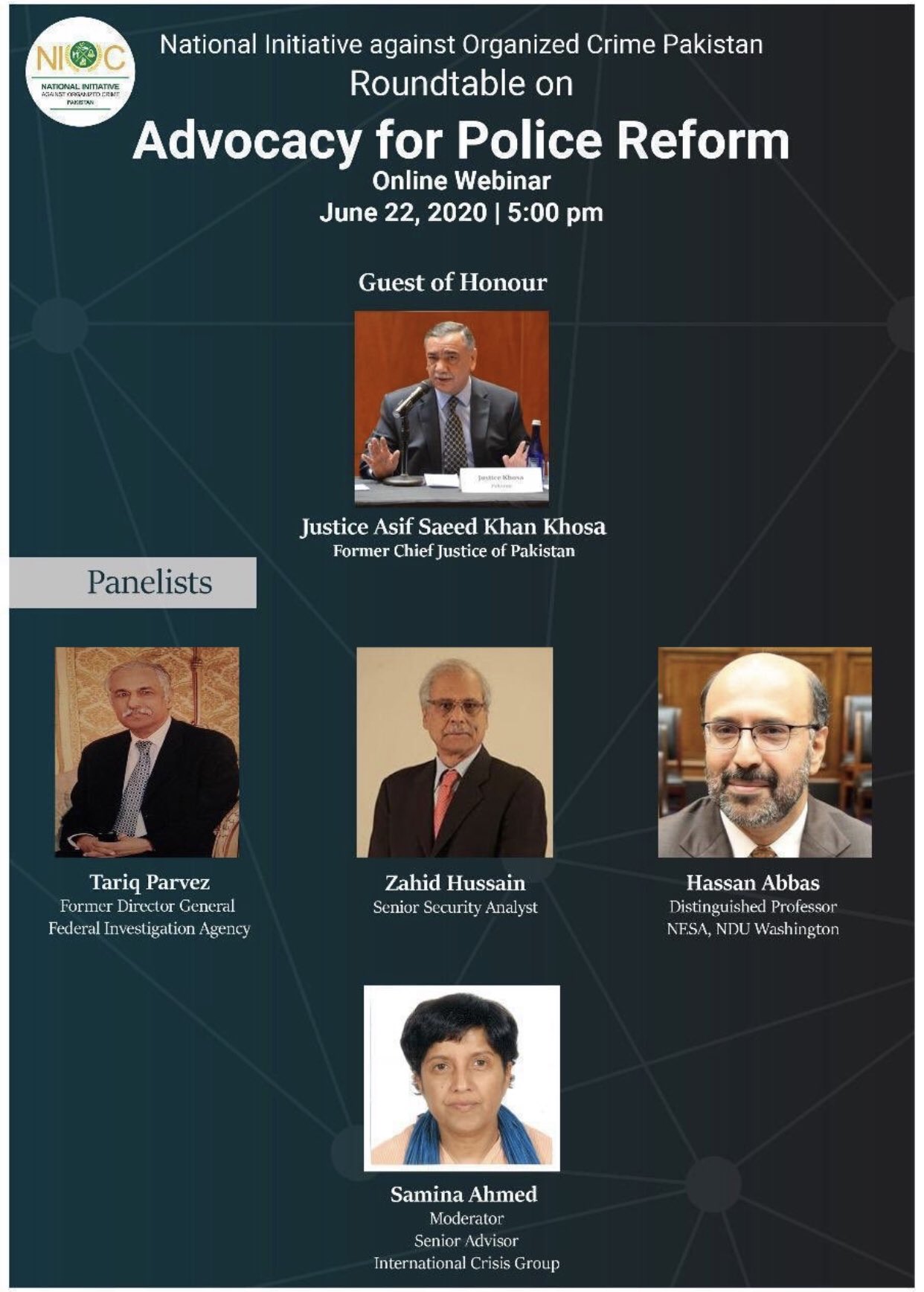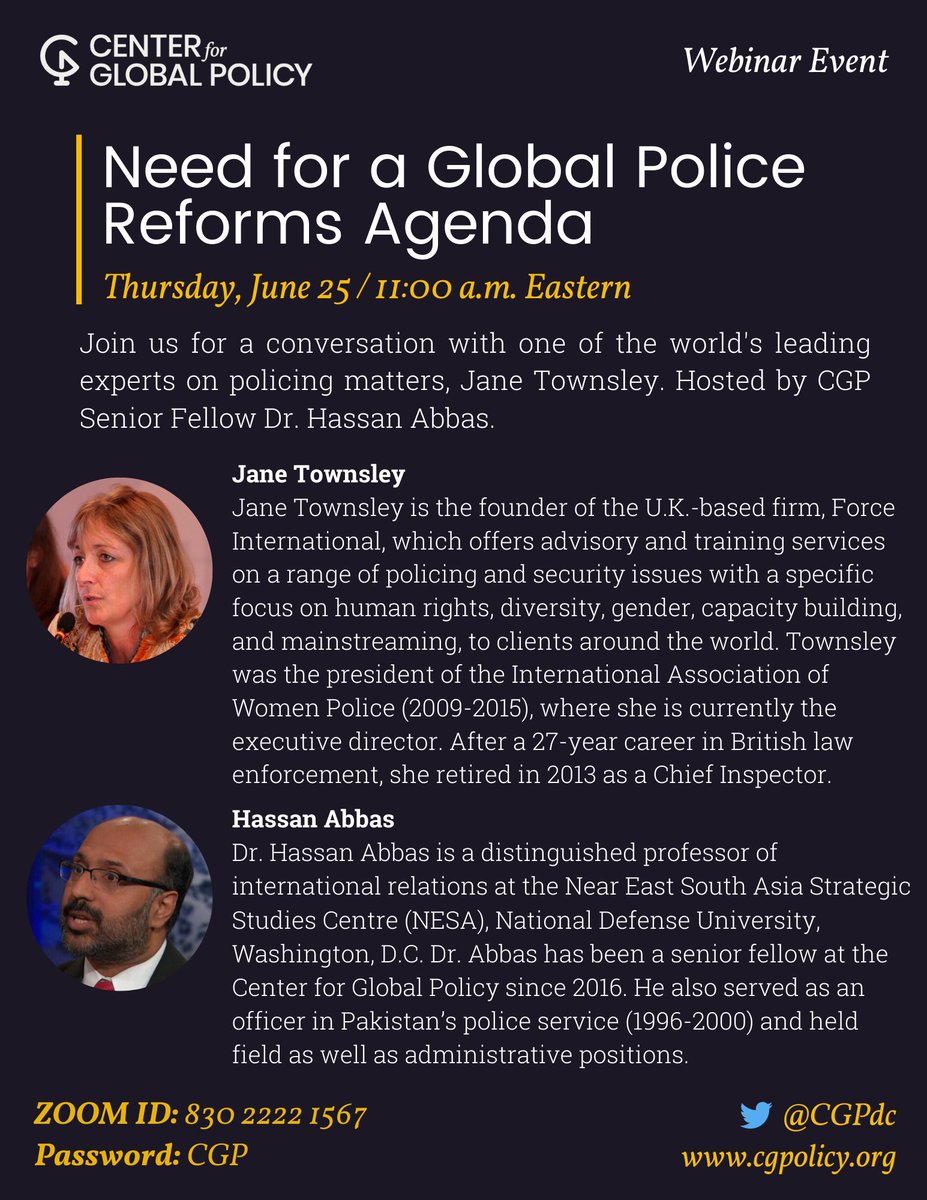Policing the Pandemic Worldwide: Best Practices for Law Enforcement Agencies
Center for Global Policy, July 16, 2020 by Hassan Abbas
The unprecedented global challenge posed by the COVID-19 pandemic is testing the resources and capabilities of government services. Law enforcement personnel, who are at the forefront in the fight against the disease and are among those at a high risk of becoming infected, have been particularly affected. The changes triggered by these challenges show that police institutions require major reforms to serve their communities better, including adopting new training curricula, establishing links between police and health institutions, investing more in community policing, fighting cybercrime, and increasing transparency in decision-making processes.
Examples of global pandemic-era crime trends from the United States, the United Kingdom, France, South Asia, and Singapore can provide lessons for practitioners and policymakers on how to prepare and invest in police institutions for better security and handling future threats. With shutdowns, travel restrictions and work-from-home limitations, reported crimes (such as theft and burglary) have declined considerably, but there has been a spike in domestic violence and cybercrime. The brutal killing of George Floyd at the hands of a police officer in Minneapolis added another layer of complexity to the situation as it galvanized anti-racism and anti-police protests across the United States and in several other countries. The full scope of the impact of the pandemic on crime and security is still unclear. Criminals have clearly adopted new ways to exploit the situation, and police have to be a step ahead of them to be effective. Police professionalism and resilience is going through a severe trial in the process.
A New Kind of Policing Challenge
COVID-19 compelled police forces across the world to alter their operational strategies and adjust their resources. In France, over 100,000 police and gendarmes patrolled streets to enforce lockdown and fine residents who left shelter without legal reason. Police stopped over 70,000 people and fined around 4,000 the first day of the lockdown. In Italy, police checked 700,000 citizens in just one week in March, over 40,000 of whom were in violation of regulations.
For complete article, click here
Examples of global pandemic-era crime trends from the United States, the United Kingdom, France, South Asia, and Singapore can provide lessons for practitioners and policymakers on how to prepare and invest in police institutions for better security and handling future threats. With shutdowns, travel restrictions and work-from-home limitations, reported crimes (such as theft and burglary) have declined considerably, but there has been a spike in domestic violence and cybercrime. The brutal killing of George Floyd at the hands of a police officer in Minneapolis added another layer of complexity to the situation as it galvanized anti-racism and anti-police protests across the United States and in several other countries. The full scope of the impact of the pandemic on crime and security is still unclear. Criminals have clearly adopted new ways to exploit the situation, and police have to be a step ahead of them to be effective. Police professionalism and resilience is going through a severe trial in the process.
A New Kind of Policing Challenge
COVID-19 compelled police forces across the world to alter their operational strategies and adjust their resources. In France, over 100,000 police and gendarmes patrolled streets to enforce lockdown and fine residents who left shelter without legal reason. Police stopped over 70,000 people and fined around 4,000 the first day of the lockdown. In Italy, police checked 700,000 citizens in just one week in March, over 40,000 of whom were in violation of regulations.
For complete article, click here
ALSO SEE:
Law Enforcement Best Practices Can Help Halt the Spread of COVID-19 by Keeping People Out of Jail - Vera Institute for Justice Policing During the Coronavirus Pandemic - Center for American Progress
Domestic abuse: get help during the coronavirus (COVID-19) outbreak - UKThe Role of Police Foundations During the Pandemic - International Association of Chiefs of Police
Global Policing Symposium: Challenges and Lessons Learnt - International Association of Chiefs of Police
Policing the Pandemic of 1918 - National Law Enforcement Museum





